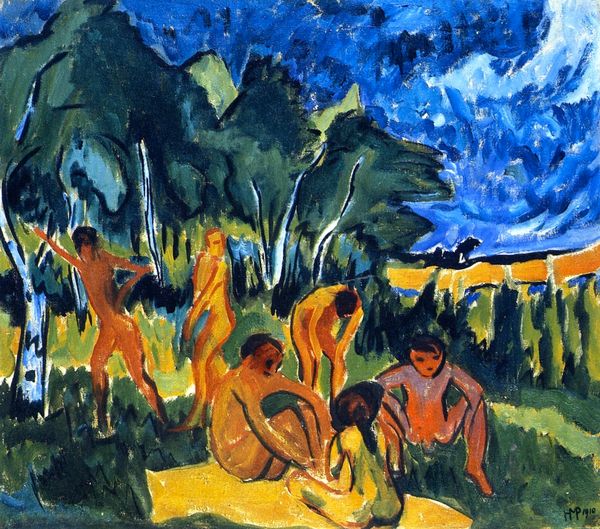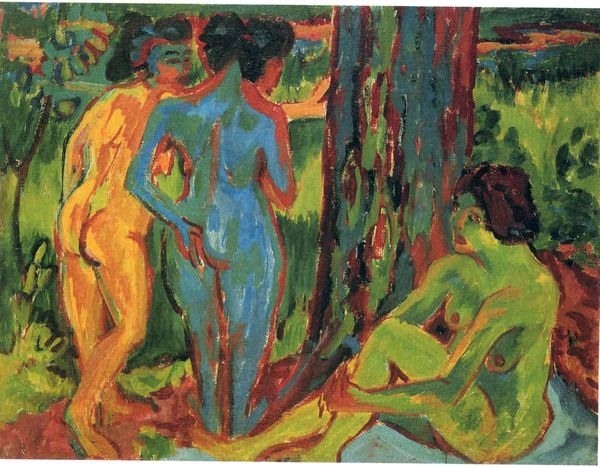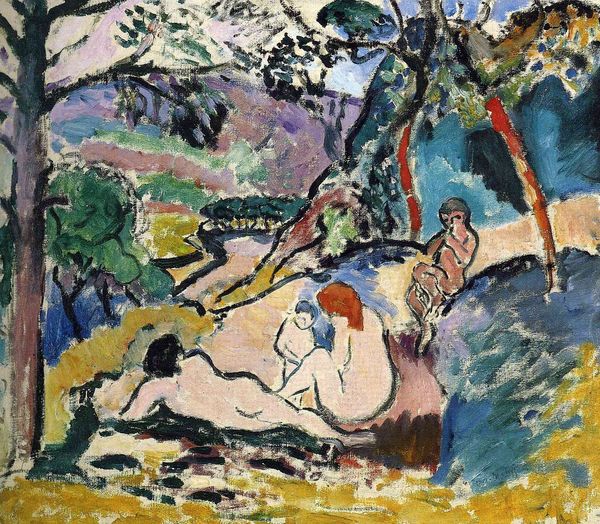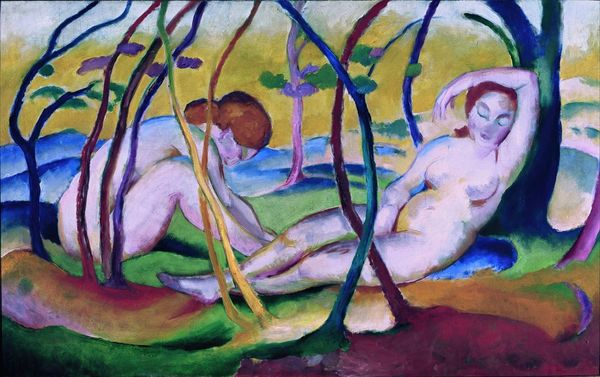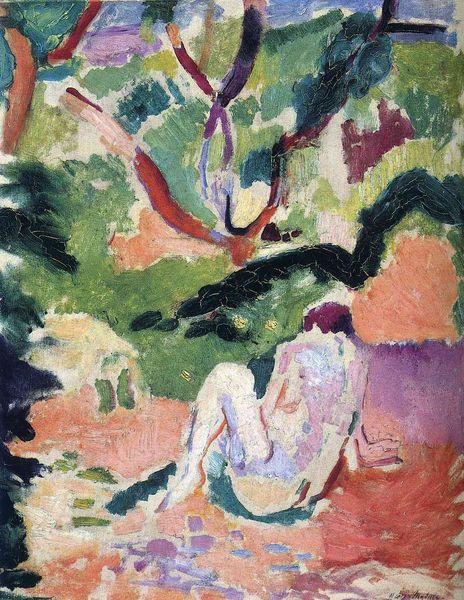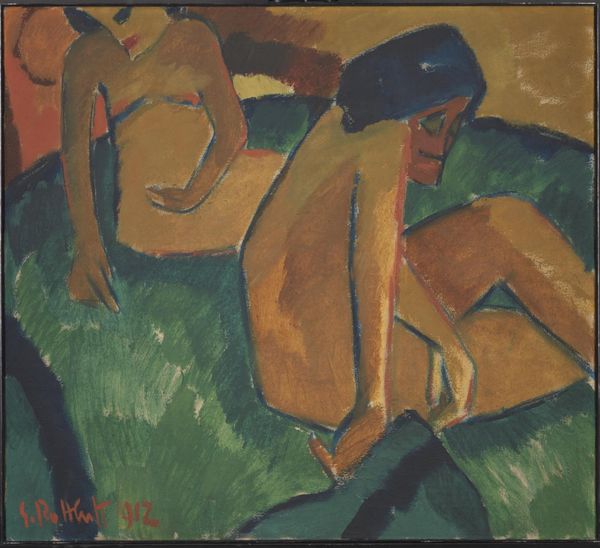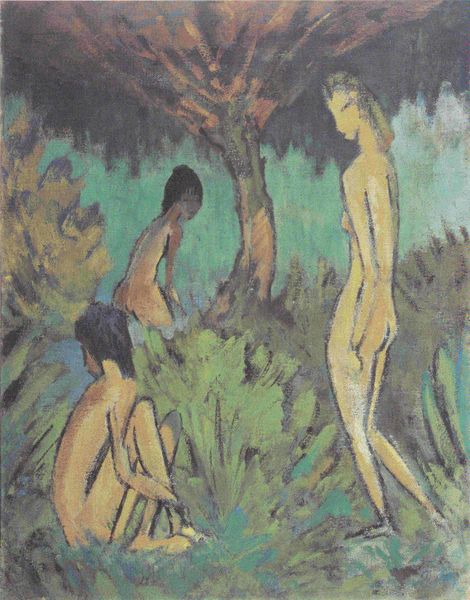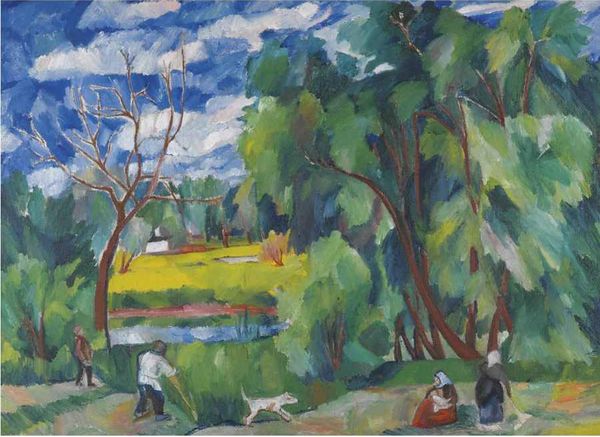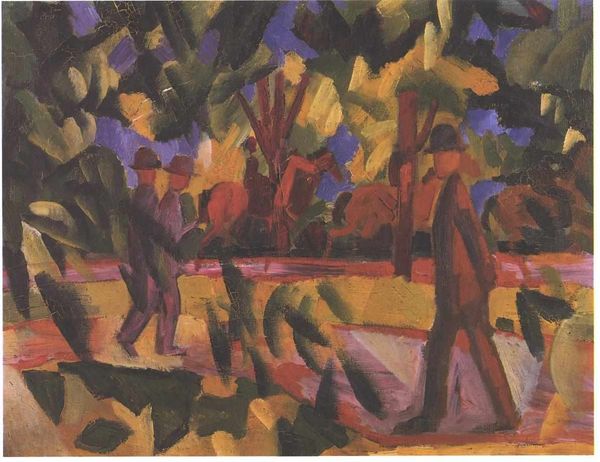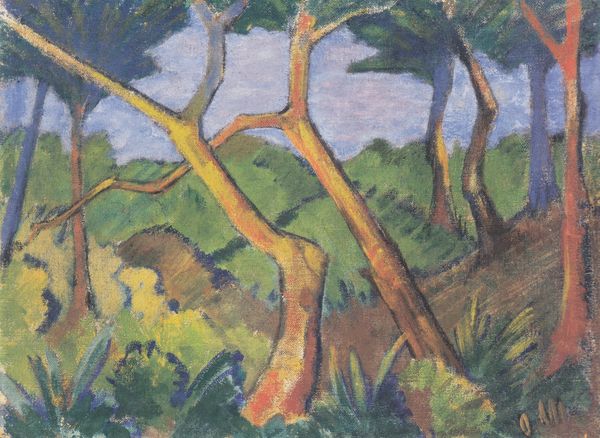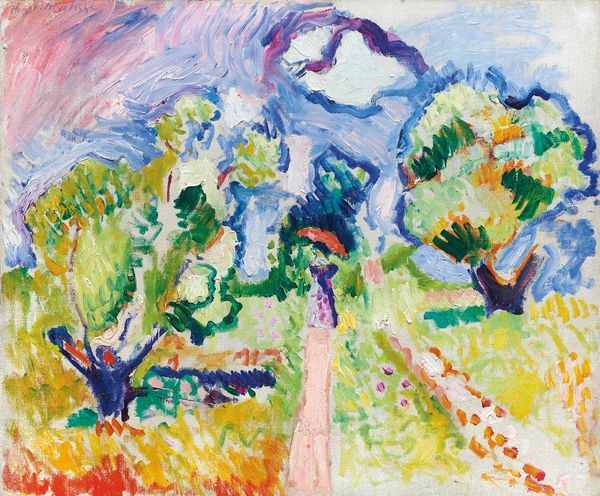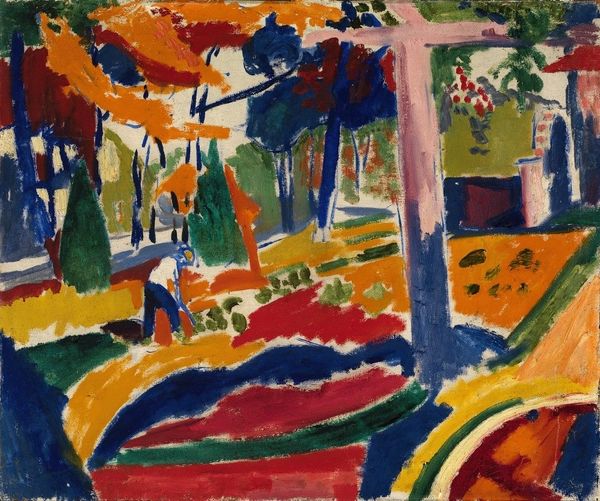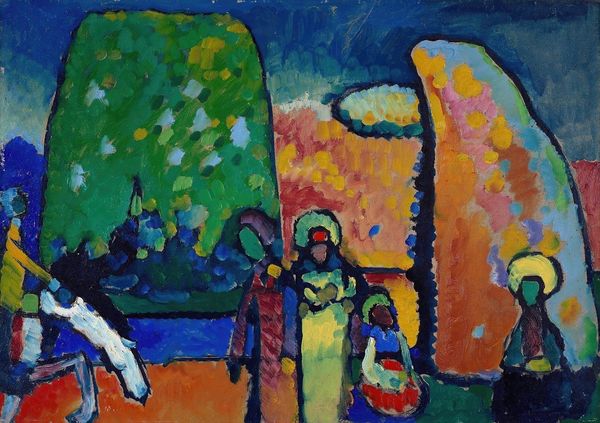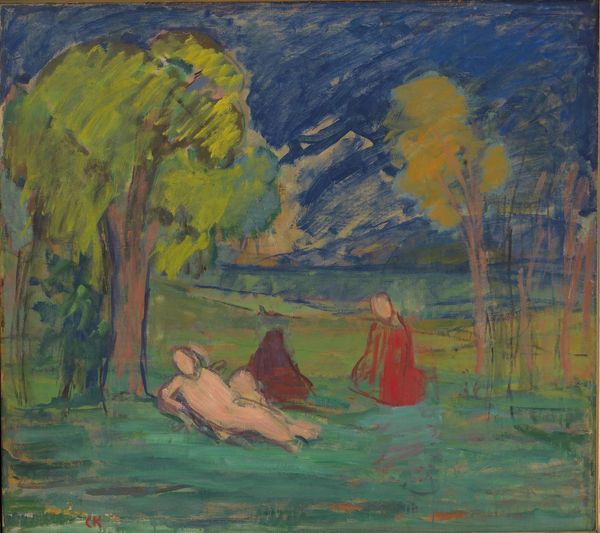
painting, oil-paint
#
impressionist
#
fauvism
#
painting
#
oil-paint
#
landscape
#
figuration
#
expressionism
#
nude
#
expressionist
Copyright: Public domain
Curator: Ernst Ludwig Kirchner painted "Playing Naked People" in 1910. The work, rendered in oil paint, currently resides at the Neue Pinakothek in Munich. Editor: Wow, it kind of makes me feel like I'm stumbling upon a secret garden party, or maybe even interrupting something... Curator: Kirchner’s work engages with themes of freedom, nature, and the body, reflecting the anxieties and desires around liberation that were prevalent in Germany at the beginning of the 20th century. You can see how the figures reject the constraints of society. Editor: The colors are wild! It's like looking at nature through heat vision. That hot orange against all the cool greens – total visual buzz. Curator: Absolutely. This tension in the palette might reflect the societal and sexual tension inherent to representations of the nude, or even point to anxieties about modernity. The seemingly pastoral subject and style confront these concerns head on. Editor: Yeah, but the figures themselves feel... vulnerable, almost exposed, and I'm not just talking physically. There's an uneasiness despite the apparent revelry. I feel this push and pull, wanting to look away but also drawn in. Curator: I find the context compelling; "Die Brücke" and similar artist collectives positioned themselves against conservative social norms and academic traditions, portraying nature as a site for exploring individual and collective freedoms. So this composition then represents both rejection and assertion. Editor: Kirchner really threw some paint down here. You can feel his hand moving, like he’s right here in the grass with them, totally swept up in the scene. But...those angular brushstrokes do not make me feel good. Curator: Thinking about what was happening politically at the time, considering the rise of expressionism as a movement interested in depicting the inner, emotional state, maybe this slightly skewed depiction makes perfect sense. It seems idyllic, yet a closer look shows a deep inner angst, even in play. Editor: Looking at this, I feel like Kirchner grabbed a moment, smeared it on the canvas, and walked away, leaving us to sort through the aftermath. It’s not beautiful in a conventional sense, but undeniably potent. Curator: Kirchner gives us an opportunity to explore the human relationship with nature and ourselves at a particular historical moment. Editor: I love that: a captured moment, smeared on canvas! It still sparks such an immediacy a century later!
Comments
No comments
Be the first to comment and join the conversation on the ultimate creative platform.
